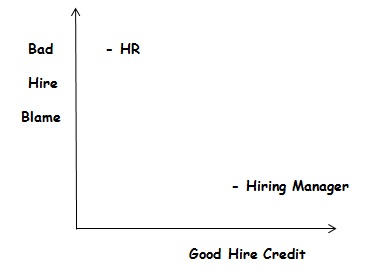From The Project mailbag –
“Tim –
My company is doing a ton of hiring and we are trying to get our employees to refer former co-workers, friends, family, etc. We offer a great referral bonus. We make it easy. Still we get little, if any, referrals – and usually it’s the same people who refer candidates. What can we do to get our employees to refer more people?
-Jennifer, Talent Acquisition Director, Austin, TX”
I love this question, because I think 99.9% of Talent and HR Pros face this same dilemma at some point in their career. We spend a ton of time and resources putting together a great referral program – then we get the same results we got from the old referral program! It’s frustrating. It makes us feel like our employees don’t care about the company. It makes us feel like we must not be doing something that we should. You’re right! Well, somewhat right!
Here is my response to Jennifer:
“Jen – (It’s funny but I have a small pet peeve – if someone has a longer name with multiple syllables or one that seems formal – I like to call them by the shorter easier name. Sometimes people take offense to that. Like with ‘Jennifer’ – I like ‘Jen’ – with William – I like Will or Bill – Steven is Steve – James is Jim – you get the picture. If you tell me “No, it’s James”, in my head I’m thinking “No, it’s asshole!” Anywho…back to Jen!)
Everything with your program is fine. Sure you can make tweaks and add technology, etc. But basically referral programs don’t work because Talent Acquisition does two things wrong:
1. You’re asking the wrong question. Almost every HR shop wants their employee to refer more candidates – and they will ask “Who do you know that is looking?” The reply, almost 100% of the time – “No.” Instead, ask this one question, then have your recruiters shut up and write down what they say: “Tell me the name of one of your previous co-workers from your last company.” That’s it. Each name is a referral. You can tweak it for certain companies you want to pull from and focus the question to those current employees who came from those companies. It works.
2. You Don’t Ask Face-to-face. Employees can blow off email easier than anything. Stop sending email and even calling them. Get your lazy butt off your chair and have your recruiters sit down face-to-face when they ask this question.
This change, to how you go about getting Employee Referrals, forces your recruiters to actually recruit – which is why 99% of companies don’t do this on the corporate side of Talent Acquisition! If all you get is a name and a place of employment – your recruiters will have to Google a phone number and call into a company to speak to the person – they also might be able to find the person on social networks and track them down that way, but it’s faster to just call them at work. People LOVE being called about a job opportunity! It’s flattering. You found them – they don’t know how – they must be doing something right!
Let me know how this works!
Tim”
I hope Jen tries this with her team, but I don’t hold out hope. People say they want more of something – you tell them how to get it – and they reply with “Oh, I didn’t want to do that”. Oh, so you were looking for magical unicorns to give you more referrals – my bad – yeah, those work to, magical unicorns are great for referrals! What people really are saying is “How can I get more referrals without doing anything to get them?” My answer to that question would be different from what I told Jen above – that answer is: “Nothing”.

